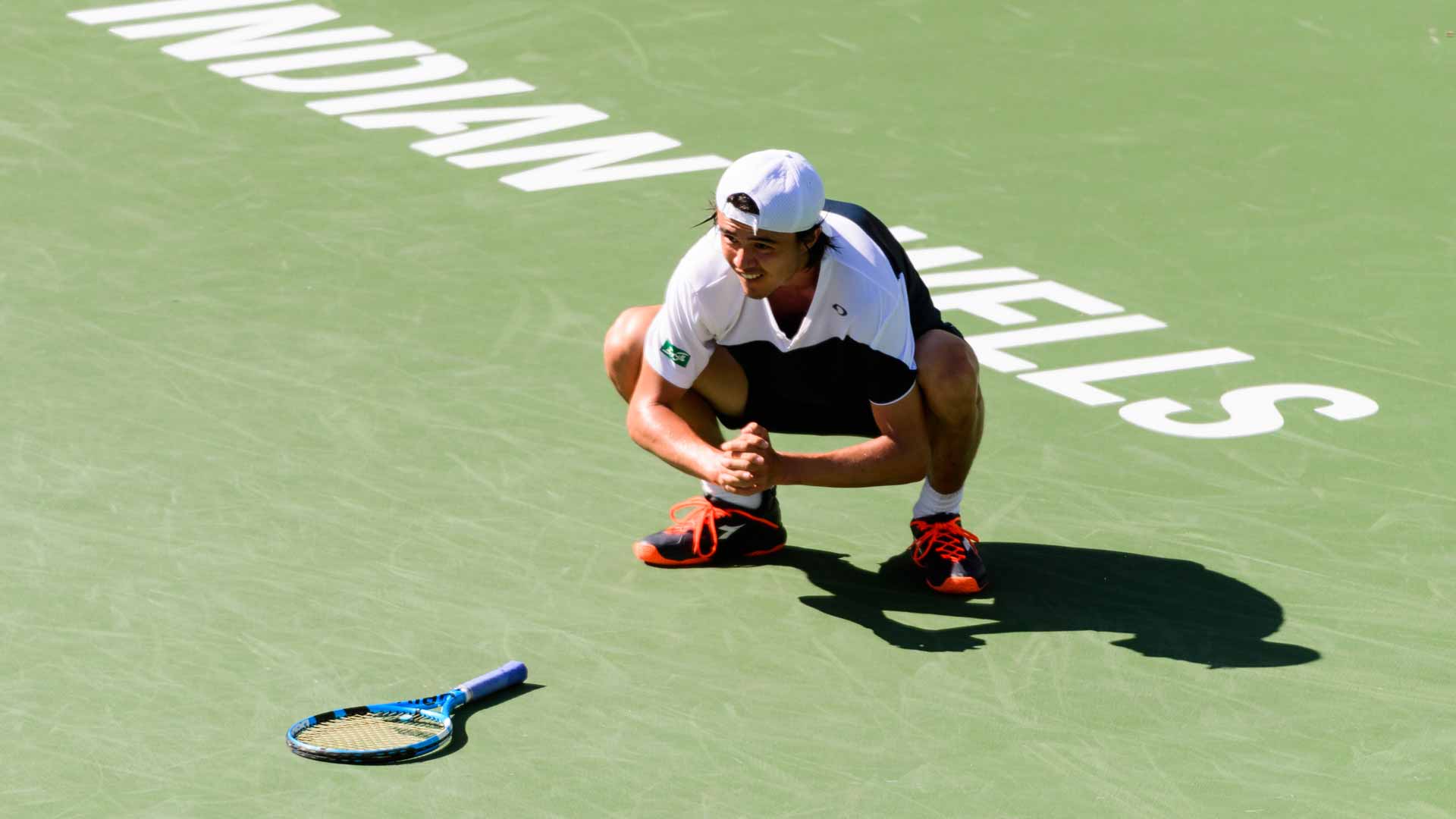After Djokovic Win, For Daniel, 'Life Goes On'
After Djokovic Win, For Daniel, ‘Life Goes On’
Players spend their lives dreaming of that big win, the victory that makes the world stop, recognise their names – maybe learn how to pronounce them – and hear their stories.
Japan’s Taro Daniel beat current World No. 1 Novak Djokovic last year at the BNP Paribas Open in Indian Wells for the biggest win of his nine-year career. And for a while, the upset felt exactly like he thought it would – life-changing, validating, satisfying.
“At that moment I won, it did feel like something big, and that’s how I thought it was going to feel like,” Daniel told ATPTour.com. “But then 40 minutes later, everything’s the same.”
He had another match to prepare for, then another tournament to travel to, and then another match to prepare for…
“In the end, it’s just a match, and then the Tour goes on, life goes on. You still have to grind some [ATP Challenger Tour] matches, you still have weeks where you can’t win matches,” Daniel said. “It did help me in terms of getting more recognition perhaps, but yeah, life still goes on.”

The “What have you done for me lately?” world can be cruel: Beat the best player in the world, and you have to back it up again, and again and again. But for Daniel, the daily tennis grind did improve after his headline win against Djokovic.
Two months later, a more confident Daniel won his maiden ATP Tour title at the TEB BNP Paribas Istanbul Open. The Japanese reached a new career-high of No. 64 in the ATP Rankings in August. “Last year was a pretty big step up,” he said.
This year, Daniel has his eyes solely on the future as he looks to construct a more complete game for himself and secure more wins over Djokovic and his peers at the top of the ATP Rankings. The 26-year-old Japanese, who was born in New York but moved to Japan as a baby, spent ages 13-23 training in Valencia, Spain, where the focus was on his groundstrokes and rallies.
“Very endurance based, a lot of crosscourt rallies… trying to not go for aces, trying to build up the point with a kick serve and get your forehand,” Daniel said.
Read Flashback: Daniel Stuns Djokovic In Indian Wells
The strategies provided a consistent tennis base for him, but lately he’s been trying to build a more complete game, including taking advantage of his 6’3”, 190-pound frame.
“I’m not going to be better than, for example, a Nishioka or a Schwartzman from the baseline, because no matter how hard I work they’re always going to move better than me,” Daniel said.
“I have to have that offensive side of my game… My serve, I have to improve my volleys, which I basically never trained until a couple years ago. Those things are adding up nicely, but it still has to really naturally come. I think it will still take a little bit more time.”
Adding new tactics and trying to change years’ worth of patterns can produce up-and-down results. Daniel made the quarter-finals at this week’s Banque Eric Sturdza Geneva Open and at the Grand Prix Hassan II in April in Marrakech. But before April, he hadn’t made a quarter-final in eight months, since last August at the Winston-Salem Open.
“We’re focusing now on getting more aggressive overall without losing his DNA of consistency,” said Gustavo Marcaccio, Daniel’s coach since July 2018. “He has already improved his serve significantly, but he could improve it even more… Little by little, he will become a big server in the game.
“As far as returns, it’s the same thing… He could easily attack the second serve a little more.”
Daniel heads to Roland Garros in a good – but precarious – spot. He didn’t have to play qualifying before the season’s second Grand Slam – good news. But his ATP Ranking has slipped to No. 107, at least eight spots away from where he’d like to be to help him secure main-draw entry into future Grand Slams.
But Daniel, a 10-year veteran on the ATP Tour, knows better than most that the tennis life can be like this: highs, lows and everything in between.
“It goes away really quick – all the good weeks. Before you know it you have to defend the points… It’s a constant struggle… You try to keep the load the light as possible, try to concentrate on improvement instead of the material side of it,” Daniel said. “It’s a long process.”

